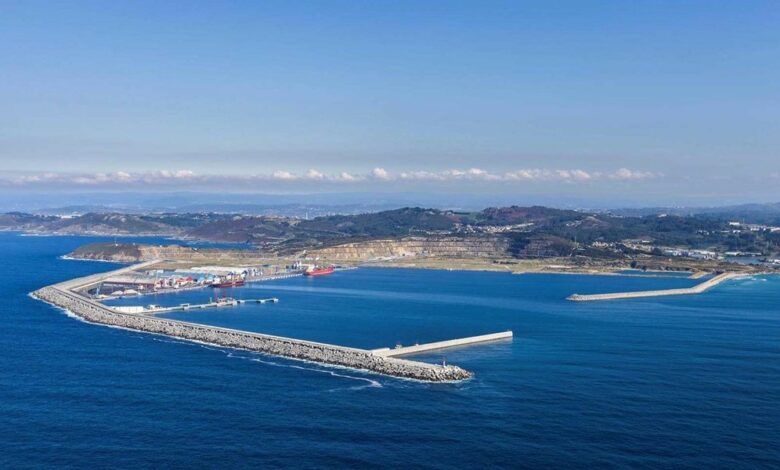Spanish port scales up floating wind ambitions

The Port of A Coruña in Spain has secured a new backer in its ambitions to become a logistic hub for the marshalling, assembly and deployment of floating offshore wind components.
German utility RWE has signed up to facilitate the scaling-up of the port capacity in support of Spain’s floating wind targets of up to 3 GW by 2030 and plans to carry out the first auction in the Canary region this year.
Under a letter of support, the partners will investigate the potential for transforming infrastructure at the port in northwest Spain, and ensure the country and even the wider region are well placed to maximise the potential of the floating offshore wind sector.
In June last year, energy players Repsol and Ørsted signed to back A Coruña port on its offshore floating wind path, but the Danish utility announced in February its plan to exit the markets in Spain and Portugal. Despite Ørsted’s withdrawal from Iberia, the port maintained that this would not affect its ambition, with Repsol remaining committed to developing floating offshore wind power in Spain and, in particular, Galicia.
“We are well positioned to cover the future needs of the growing floating wind industry,” assured Martín Fernández Prado, executive chairman at A Coruña port on Tuesday.
Meanwhile, RWE has been working on the development of cost-competitive floater projects globally and has already secured a commercial-scale lease off the California coast. The company is also involved in two demonstration projects in Norway and Spain, where the DemoSATH demonstrator was commissioned in 2023 off the Basque coastline, becoming the first floating wind turbine connected to the Spanish grid. Recently, RWE has partnered with Ferrovial, a sustainable infrastructure and mobility company, to jointly develop and operate floating offshore wind farms off the Spanish coast.
“Port capacity and a sustainable supply chain industry are key to the deployment of commercial-scale floating offshore wind projects,” said Marta Carroza Diaz, head of floating eind industrialisation and engineering at RWE Offshore Wind, adding: “Already today, key components for European wind projects come from Spain, making wind energy a key sector of the country’s economy, creating chances for investment, regional and national growth, and skilled jobs. Floating wind will further strengthen this position.”
